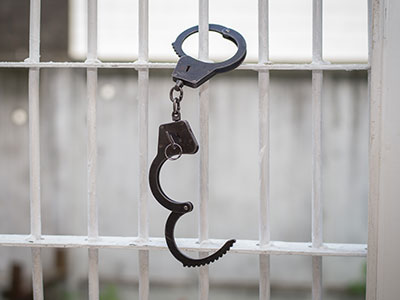Once Someone Is Released From Jail, What’s Next? Will They Leave With Paperwork Or Instructions?
 Upon release from jail, an individual will typically receive a notice to appear in court, as well as a property receipt indicating the items that were seized from them at the time of their arrest. In a DUI matter in California, the individual will also be provided a temporary license or a pink sheet, which advises them that they must contact the DMV within 10 days. If the individual was released from court on supervised release, then they’ll likely receive information as to what they need to do before the next court date (e.g. meet with pre-trial services, attend certain classes). If the paperwork doesn’t indicate a notice to appear, then the individual should consult with a lawyer who can contact the court and ensure that court dates are not missed.
Upon release from jail, an individual will typically receive a notice to appear in court, as well as a property receipt indicating the items that were seized from them at the time of their arrest. In a DUI matter in California, the individual will also be provided a temporary license or a pink sheet, which advises them that they must contact the DMV within 10 days. If the individual was released from court on supervised release, then they’ll likely receive information as to what they need to do before the next court date (e.g. meet with pre-trial services, attend certain classes). If the paperwork doesn’t indicate a notice to appear, then the individual should consult with a lawyer who can contact the court and ensure that court dates are not missed.
What Are Some Common Mistakes That People Make After Their Release From Jail?
Even after a release from jail, people often make the mistake of talking to the police or approaching law enforcement in an effort to resolve the matter. Another mistake is not retaining a qualified attorney who can advise them and conduct an early investigation, which will be more fruitful than one that starts weeks or months later, after critical pieces of evidence have been lost.
In the context of a DUI case, an attorney needs to assist the individual in contacting the DMV within 10 days of the date of their arrest. At the first court hearing after their release, the accused will want to have an attorney who can advocate on their behalf.
Will There Be A Criminal Court Appearance Within The First Month Following An Arrest?
In most circumstances, a first court date will be set within 30 days, but there are caveats. For misdemeanor matters, court dates are often set 30 to 90 days from the date of the arrest. For felony matters, court dates are often set within 30 days of the arrest, but this can change. It’s best to consult with a lawyer.
When It Comes To Scheduling A First Court Hearing, Are There Any Time Standards By Which The Courts Must Abide?
If a person has been released from custody, there are no applicable time standards that the court must follow in scheduling a first court hearing. The only standard is that for a misdemeanor case, the individual must be brought to court within a year; for a felony case, it’s typically three years, with a few exceptions.
Once an accused has appeared at the arraignment, they can decide whether or not to waive their right to a speedy trial. In a misdemeanor case where the defendant does not waive time, the court has 45 days to get them to trial. In a felony case where the defendant does not waive time, the court has 10 days or 60 days to hold a preliminary examination, depending on which right the defendant is invoking.
How Often Should A Person Expect To Meet With Their Criminal Defense Attorney To Discuss Their Case In The First 30 Days?
An attorney will likely contact their client as needed to discuss the case. I stress the importance of remaining in contact with an attorney and communicating any questions that may arise. I often advise my clients to be proactive and reach out to me with any questions about the process or the status of the case as often as they deem necessary. It is much better to be fully communicative with your attorney than to feel left in the dark and not know or understand the status of your case.
Will An Individual Have To Meet With A Pre-Trial Probation Office Within The First 30 Days Following An Arrest And Charge?
If a person has been released on supervised release and has already appeared at their first court date, the court will typically assign them to meet with pre-trial services in the county of the arrest, whether for drug and alcohol testing, counseling, or a progress check. After an arrest and prior to the arraignment, there will not necessarily be any obligations, aside from procedural requirements that may apply, such as contacting the DMV in a DUI case. That being said in a DUI case, it may be within the client’s best interests to attend multiple self-help or AA meetings in advance of the first court date.
For more information on Criminal Law Cases in California, a personalized confidential consultation is your next best step. Get the information and legal answers you are seeking by calling (415) 782-6002 today.

Call Now For A Personalized Confidential Consultation!
(415) 782-6002



